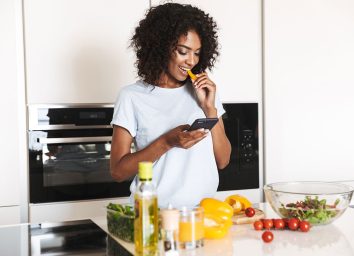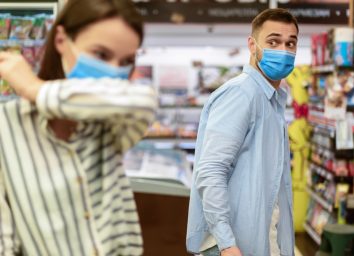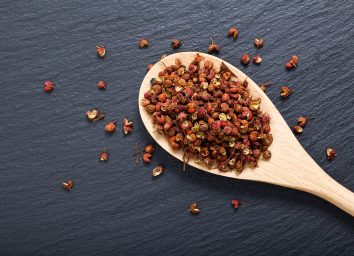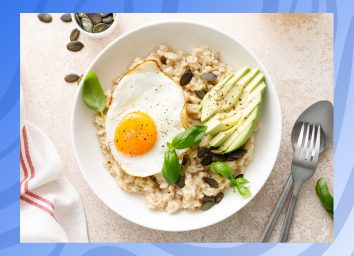Eating Risks to Avoid During COVID, According to the Mayo Clinic
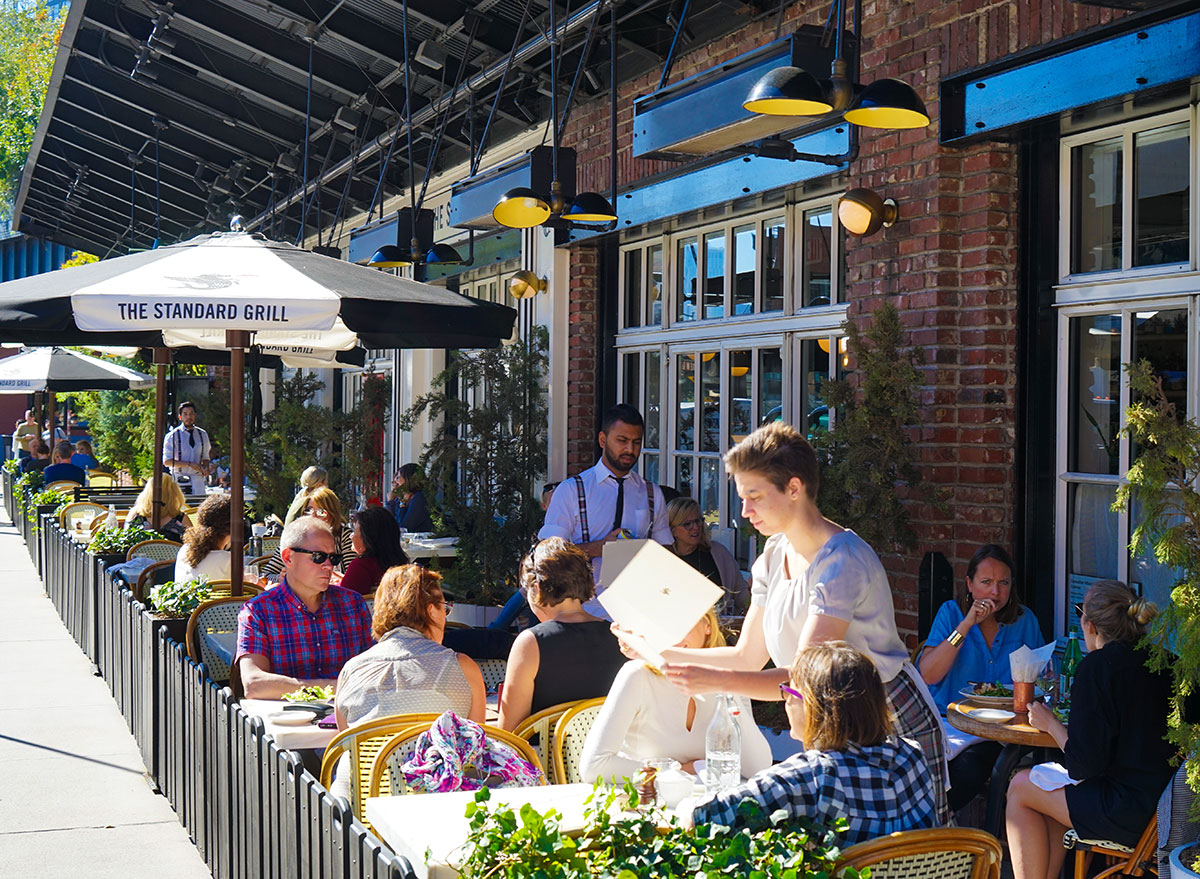
Although the CDC notes that there is no evidence to support the transmission of COVID-19 through food, that doesn't mean you're safe from being infected with the novel coronavirus when eating.
Whether dining out, ordering takeout or delivery, or handling food after grocery shopping, there are multiple eating habits that can put you at risk of COVID-19, according to the Mayo Clinic.
Here are the seven most common eating risks you should avoid during the COVID-19 pandemic due to their links to contracting the virus, as explained by the Mayo Clinic. Read on, and for more on healthy eating, don't miss 11 Best Tips for Safe Grocery Shopping Amid Coronavirus Concerns.
Don't take a leisurely lunch.
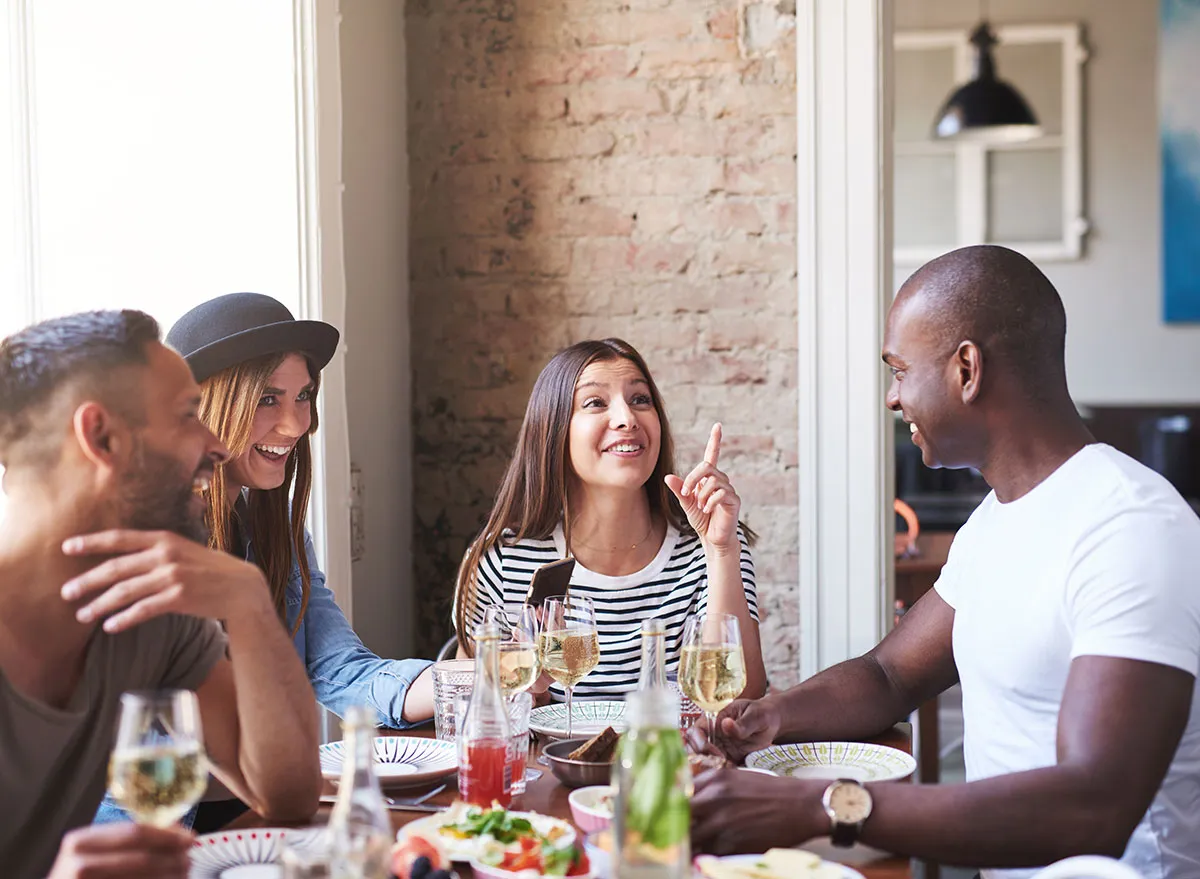
The Mayo Clinic urges that if you go to a restaurant, you shouldn't stay long. The longer you are around people without masks, the longer your exposure time, the more of the virus you breathe in, and the more it can build up and infect you. The Mayo Clinic reports that being exposed to an infected person who is within 6 feet for a total of 15 minutes over a 24-hour period can put you at increased risk of COVID-19.
Don't go to restaurants during peak hours.
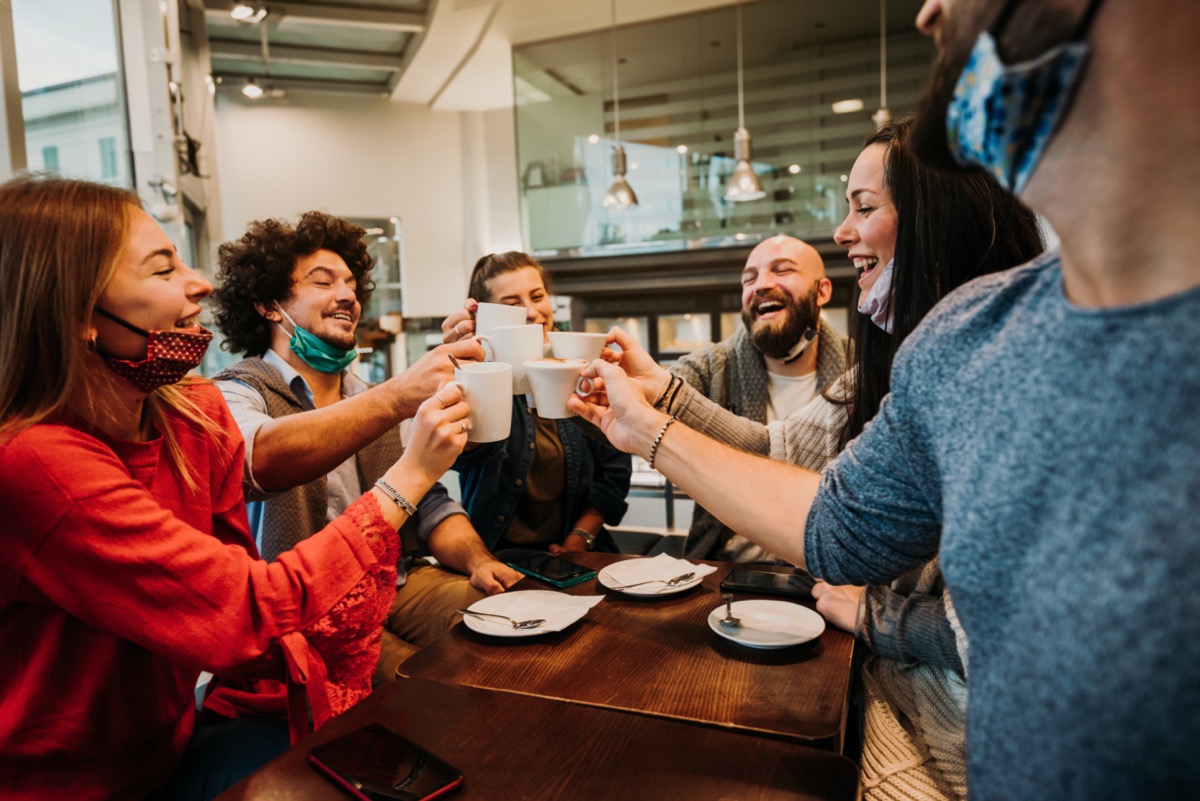
Going to a restaurant when it's busiest will increase the probability that you may come into contact with a person infected with COVID-19. The Mayo Clinic recommends that you avoid eating out at busy times of day or night.
Don't forget to follow safety guidelines when ordering takeout or delivery.
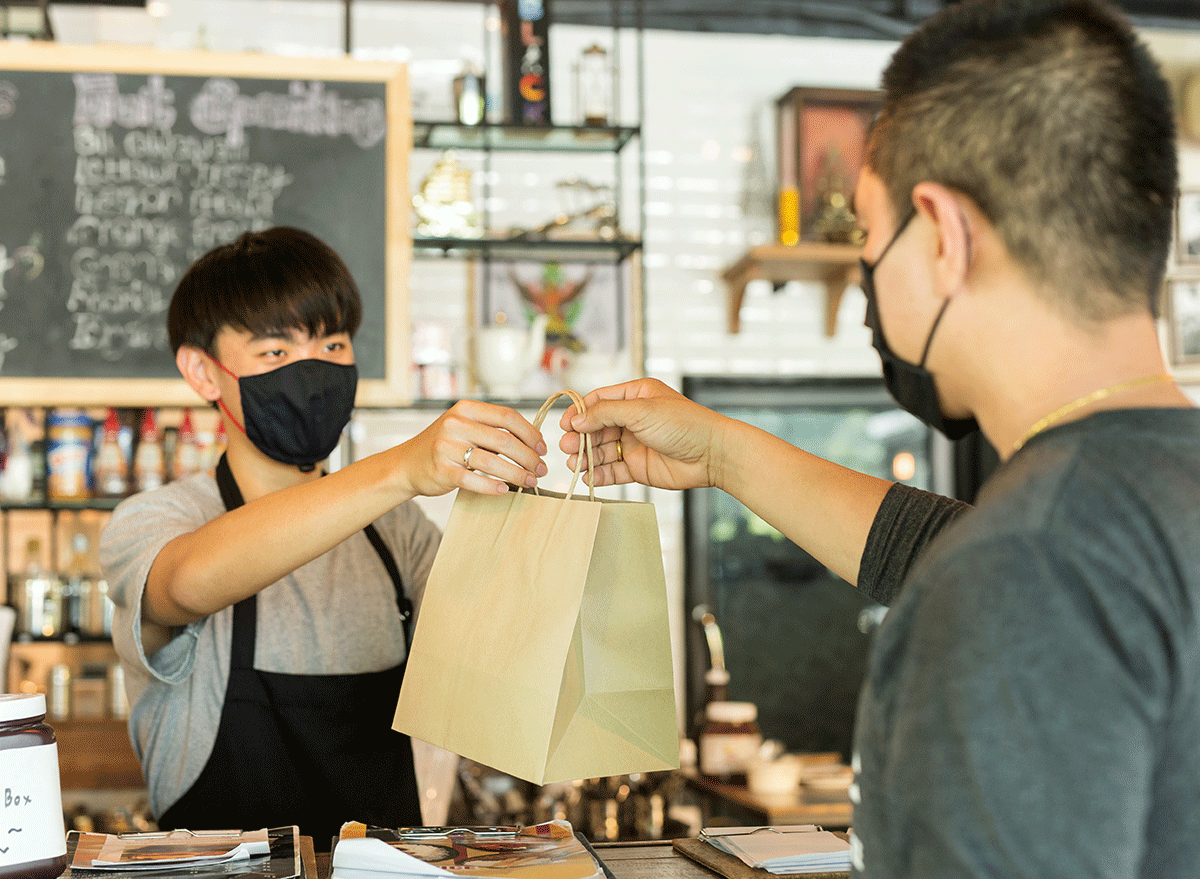
While you're not eating in a restaurant where you could be exposed to someone infected with COVID-19 over long periods of time, there are still some risks associated with coming into contact with someone with COVID-19 when ordering takeout or delivery; however, following the proper precautions will significantly lower this risk. The Mayo Clinic suggests that you "try to pay online or over the phone to limit contact with others" when ordering takeout.
For delivery, "ask for it to be left outside your home in a safe spot, such as the porch or your building's lobby." Whether it's takeout or delivery, stay at least 6 feet away from the person handling your food. Lastly, "after bringing home your food, wash your hands or use hand sanitizer."
Don't forget your mask when dining out.
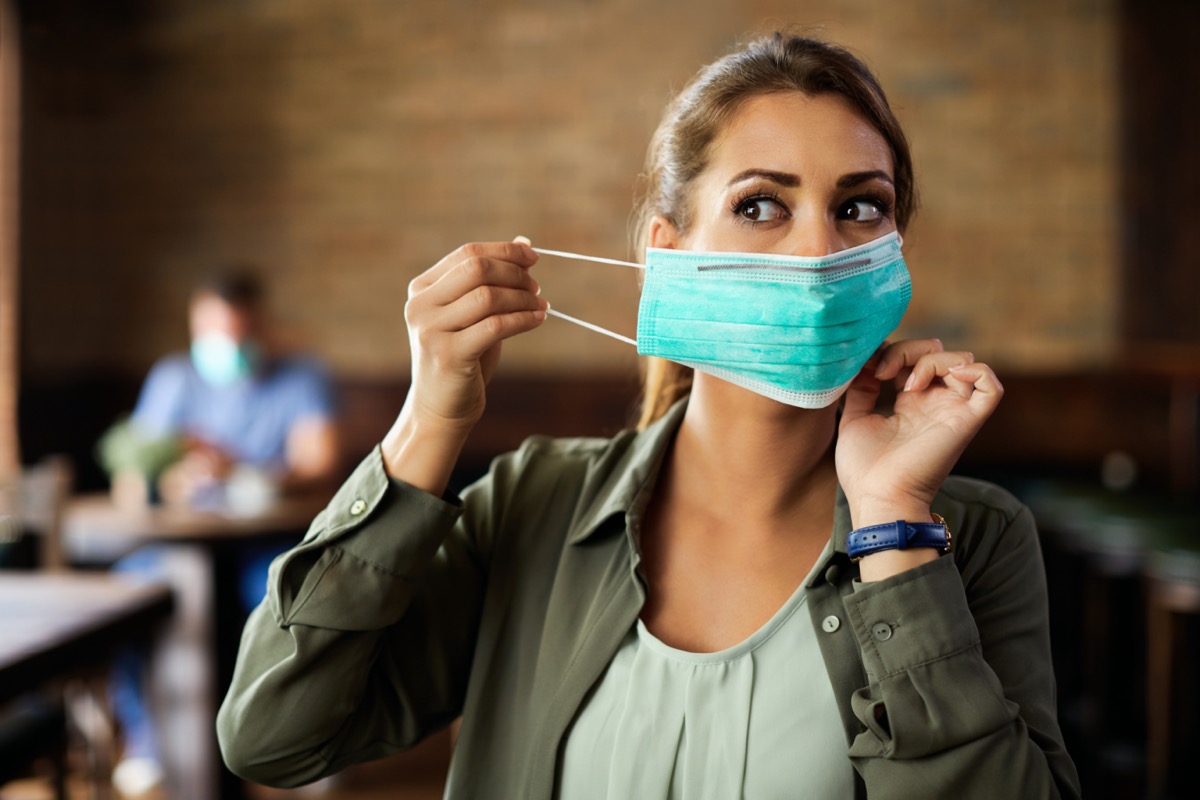
Of course, you need to remove your face mask in order to eat food, but the Mayo Clinic urges that you still "wear a face covering as much as possible when you are not actively eating or drinking."
Don't drink too much alcohol.
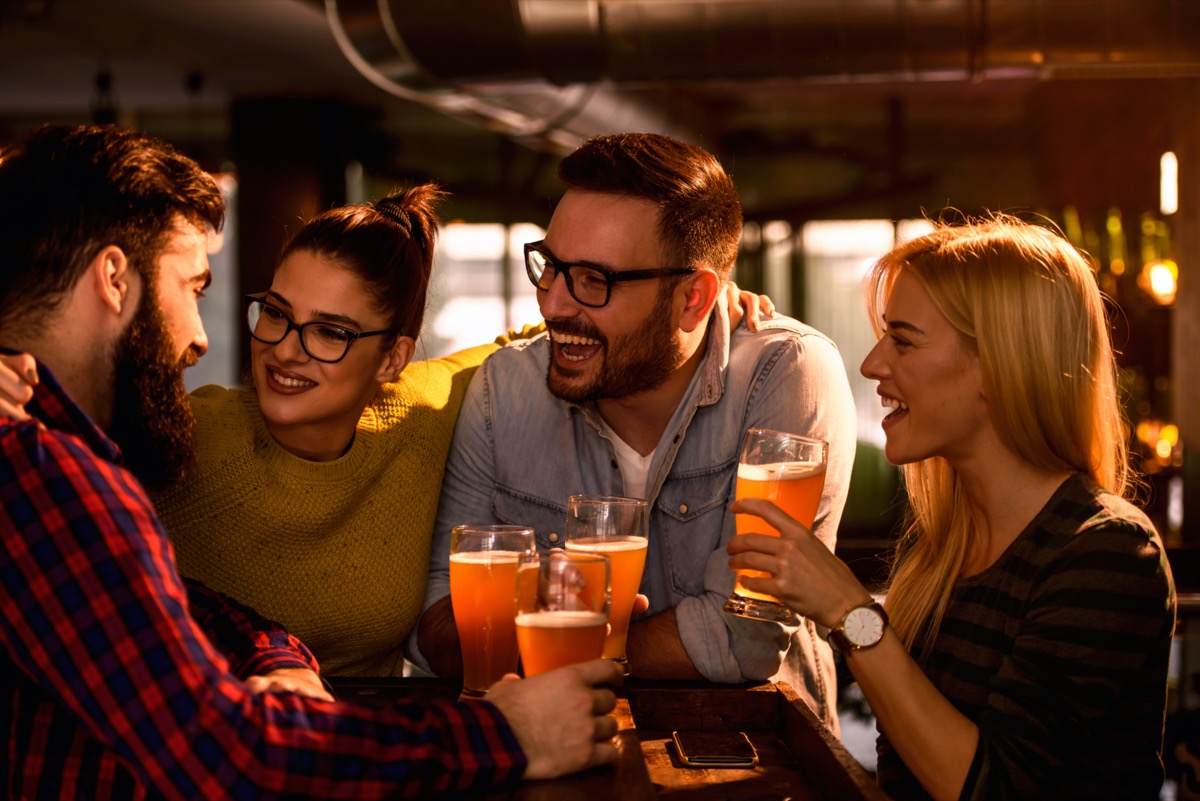
There are some ugly side effects of drinking too much alcohol—which include liver problems and weight gain—but there's one additional side effect of drinking too much alcohol to be hyperaware of during COVID: that it can make you less likely to follow safety measures, according to the Mayo Clinic.
Don't eat out of takeout containers.
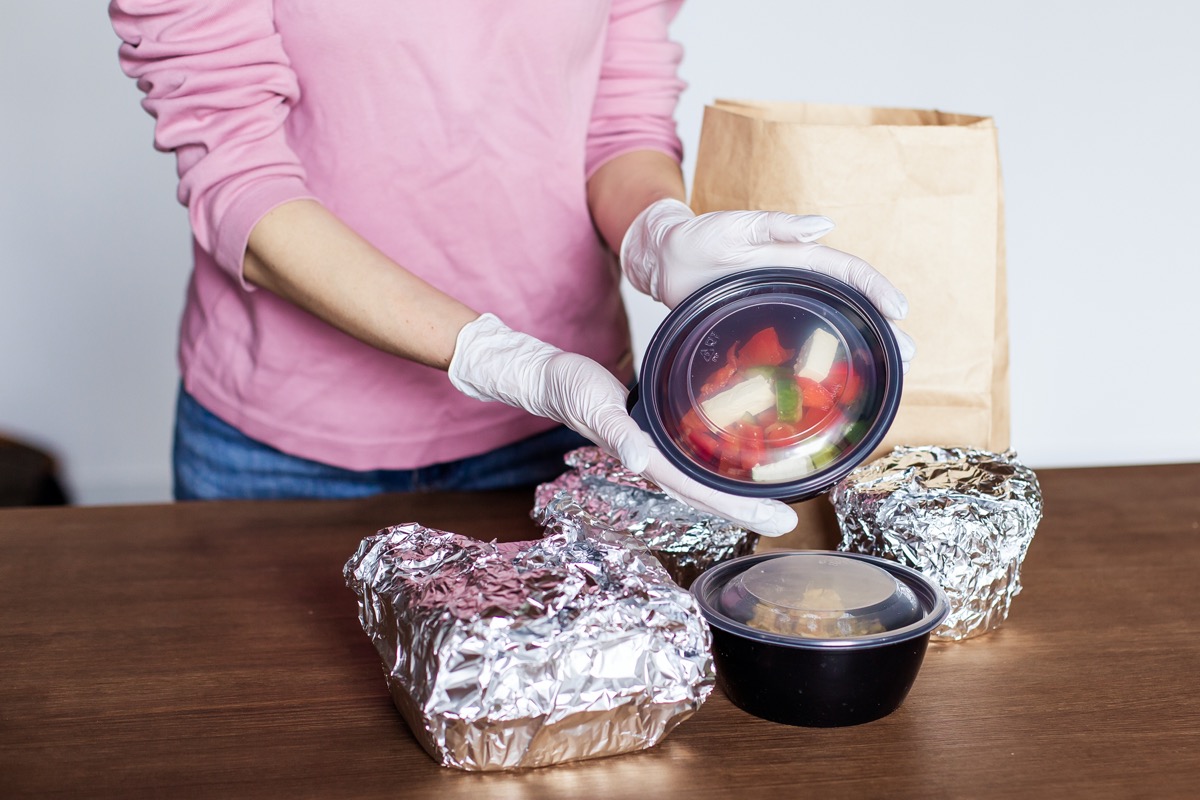
While Mayo Clinic doctor William F. Marshall, III M.D. notes that there is no evidence of anyone contracting the virus that causes COVID-19 after touching food containers and food packaging, it does have some best practices to follow when ordering food to go. These include transferring food to a clean dish using clean utensils, washing your hands again before eating, and cleaning and disinfecting any surfaces that had takeout containers on them.
Don't forget to wash your fruits and vegetables.
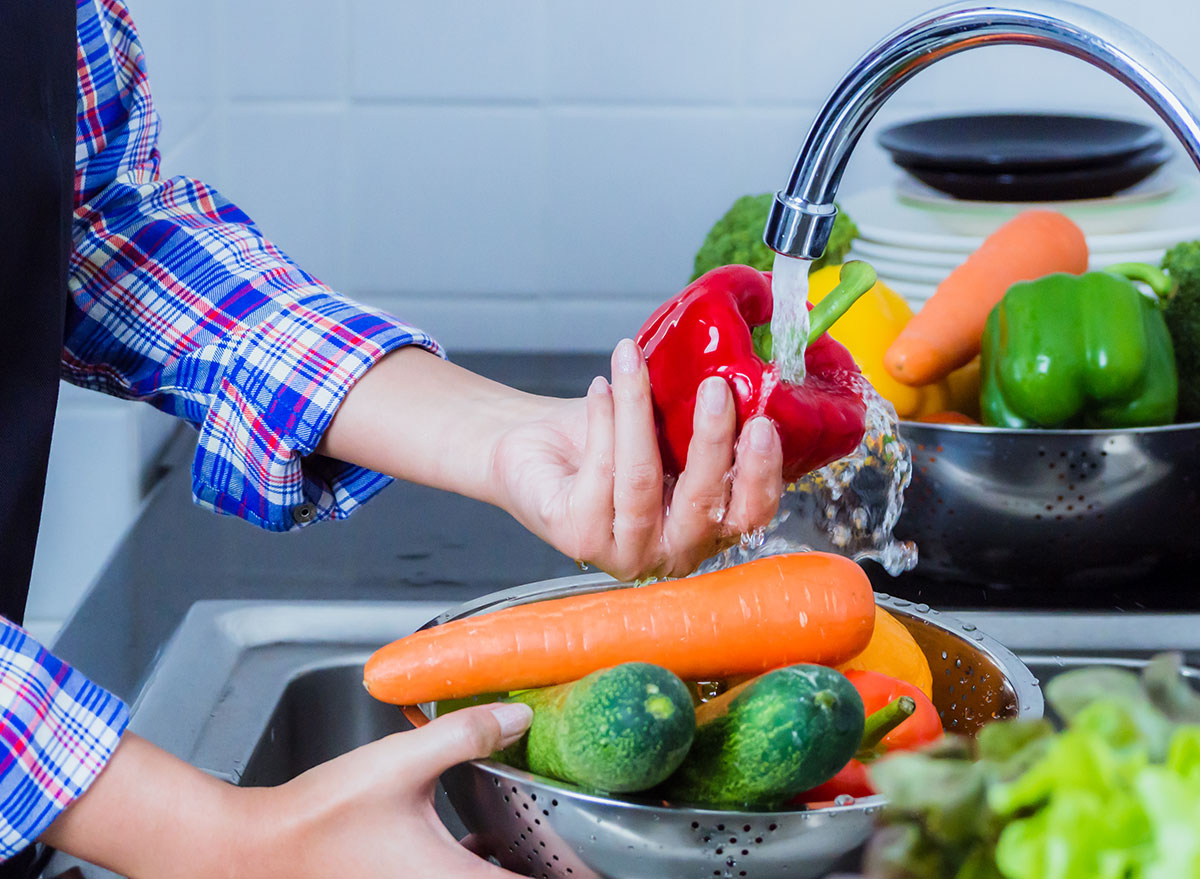
Currently, there is no evidence to support the transmission of COVID-19 associated with food, according to the CDC. However, there is some evidence to support that it is possible to contract COVID-19 by touching a surface or object (like food) that has the virus on it and then touching your face; however, this is not the main way the virus spreads.
"The biggest risk of contracting the virus from food would be if you touch food that's been exposed and then touch your face," says Dr. Abinash Virk, a Mayo Clinic infectious diseases specialist. "In that sense, it is best to wash your hands before and after handling food and washing unpeeled fruits and vegetables before you eat them."
To be as safe as possible, the Mayo Clinic suggests following best practice food safety guidelines: wash all fruits and vegetables thoroughly before eating them, by running them under water, scrubbing produce that has a rind or thick skin with a clean produce brush, and washing your hands well with soap and water as soon as you get home from the grocery store. It is possible to harness the power of food to protect you from the coronavirus. See these 11 Best Immune-Boosting Foods to Fight COVID-19, Say Doctors.
